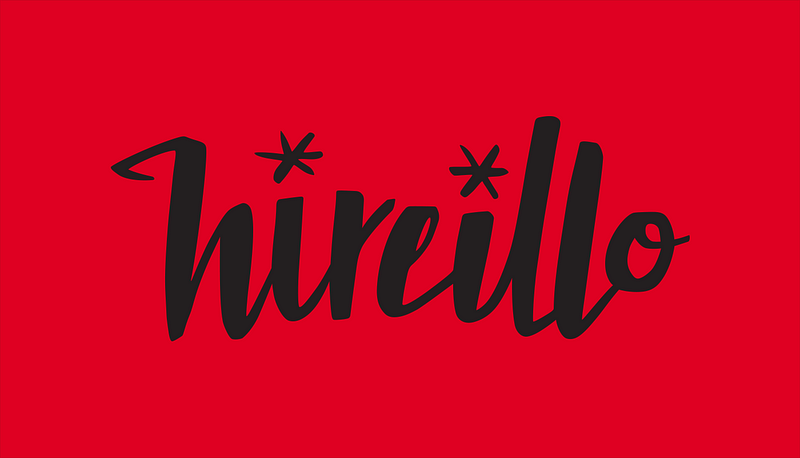The Illusion of Good Bidding Sites in the Creative Industry
Written on
Chapter 1: The Ethical Quandary of Bidding Platforms
There are no genuinely beneficial bidding platforms. Despite their attempts to market themselves as positive contributors to the creative economy, these sites often operate within a framework of ethical ambiguity.

In 2020, I reflected on the reasons Fiverr can be a challenging environment for freelancers. While Fiverr aggressively promotes its position among low-cost service platforms, it’s crucial to recognize that a plethora of similar sites exist, siphoning off earnings from workers without providing meaningful value or maintaining quality control. Although Fiverr does not operate exactly like traditional bidding platforms such as Upwork or Reedsy, it is deeply embedded in an environment that tends to exploit workers.
Creative professionals are well aware of the disadvantages associated with bidding platforms. This awareness is instilled in us during design training, through conversations with industry veterans, and simply by observing the myriad of platforms that seem to trap creatives like insects in a web.
These sites are notorious for offering low-cost services that appeal to clients who often undervalue professional work. The structure of these platforms pressures sellers to submit low bids for projects. Once engaged, they must adhere to strict limitations while relinquishing a significant portion of their earnings to the site itself. The platforms frequently suffer from poor design, lack accessibility, and do not provide adequate support, creating an unhealthy atmosphere for professional development.
Why do clients gravitate toward these platforms?
It's understandable that clients turn to sites like Fiverr, Reedsy, and 99Designs. The creative field can be daunting for those unfamiliar with it, and there are few comprehensive directories for professional services. Many clients would rather not invest time in finding the right expert. When these platforms claim to champion the interests of users while vehemently denying any criticism, it becomes easy for potential clients to be deceived by their marketing strategies. Furthermore, the arts sectors in the UK and the US are often undervalued and underfunded, even though they make substantial contributions to the economy—contributions that these platforms seek to exploit.
Many people fail to recognize that searching for creative services is not akin to buying a budget laptop. While a low-cost computer may be adequate for basic tasks, it lacks the power needed for high-performance jobs like gaming or graphic design. The cheap, non-professional design offered by bidding sites is fundamentally different from professional services. The individuals providing these services cannot deliver the same quality as seasoned creatives; otherwise, they wouldn’t be compelled to forfeit a significant portion of their earnings to platforms that offer little in return.
These platforms actively encourage clients with limited budgets. Fiverr, in particular, has aggressively tapped into the low-cost market by launching campaigns that glorify unhealthy work habits and disparage industry professionals. They also reach out to these professionals in hopes of gaining endorsements. Other platforms, like Reedsy, maintain connections with self-proclaimed authorities in independent publishing to appeal to self-publishing authors who often seek guidance. By leveraging these figures, they promote their services to cost-conscious clients. Similarly, 99Designs maintains a blog that rehashes professional insights to lend credibility to their notorious practices.
This is particularly appealing to clients deterred by the perceived high costs of genuine services, who are unwilling to question the true price of cheap labor.
What is the real cost?
The reality for both sellers and buyers on these platforms is a convoluted landscape filled with ambiguous contracts, minimal oversight, and punitive practices. Many bidding platforms prioritize opacity, especially concerning fees. A common practice involves charging both parties without their knowledge. Security issues abound, with scammers often operating freely on these platforms, while sites that utilize services like Stripe disclose sellers’ email addresses—a situation they are aware of but still penalize users for contacting each other outside the platform.
At the core, these platforms, regardless of how much they portray themselves as beneficial, take significant cuts from earnings, leaving sellers unable to earn a fair wage for their contributions. In return, practitioners are met with poorly designed sites and a lack of support. For instance, Fiverr retains 20% of a seller's earnings and an additional 5% from buyers on orders over $40 (or a flat fee of $2 for smaller orders). Other platforms may vary, but on average, bidding sites take around 10% from each project, while also charging buyers.
Consequently, sellers either absorb the costs or inflate their prices to compensate, resulting in higher fees and increased revenue for the platforms.
What do designers truly need?
One might ask, "So what? These platforms provide a semblance of service, and if someone gets duped, isn't that their own fault?" While this is a somewhat valid perspective, it overlooks the reality for those who rely on low budgets as a significant source of income. It also ignores the fact that a platform designed solely to profit its owners, without offering anything of value to its users, is inherently exploitative.

Hireillo stands as a contrast, generating revenue while genuinely prioritizing user experience and satisfaction. This directory showcases talented illustrators and offers valuable insights—all through a subscription model that is more affordable than a Netflix plan. There are no hidden fees, no ambiguous contracts, and the platform is well-structured.
This is precisely what the design industry requires.
However, when unethical platforms actively seek critical feedback and either attack or unjustly remove it from review sites like Trustpilot and Glassdoor, they fill those same spaces with artificially inflated positive reviews, often obtained from employees or outright purchased. This leads to a distorted perception of these platforms, making it difficult for smaller, ethical alternatives to receive any visibility and restore balance against aggressive bidding sites.
These platforms are acutely aware of their influence and the limited options available for addressing their misconduct. This is why 99Designs continues its unethical practices; why Reedsy silences anyone who questions its service quality; and why Fiverr has built an entire business model around free labor. They know that within an unregulated gig economy and a digital landscape where users must agree to vague contracts to access services, they operate without accountability. They also understand that their clientele often supports them, trapped in a cycle of cheap services that prevents them from recognizing the unprofessional practices they endorse and the poor user experiences they tolerate.
The Absence of Good Bidding Sites
Bidding platforms resemble exploitative landlords within the freelance creative realm. They capitalize on a resource that many require, extracting profits at the expense of users. These platforms are constructed poorly, cater to budget-conscious clients, and effectively hold users captive to reap passive income from their low-cost offerings. Without proper oversight, these sites have no obligation to ensure their platforms are functional, transparent, or secure.
Much like landlords, these sites thrive under the guise of legitimate business operations. They generate noise to obscure the fact that they provide little of substance. In reality, the only thing bidding sites do is siphon funds from their users. This model is bound to be exploitative.
Beyond the evident injustice of requiring users to part with over 10% of their earnings without receiving any value in return, there’s an unsettling sense of entitlement from the owners of these bidding platforms. Their misplaced sense of accomplishment speaks volumes about society; in an era where the Internet has been accessible for three decades, rather than facilitating work opportunities or fostering healthy networks, we’ve created platforms that deprive creatives of their earnings and complicate their work lives.
With the extensive marketing and SEO efforts these platforms deploy, combined with the fervent advocacy from budget clients, it becomes increasingly challenging for sincere clients—who are uncertain about how to seek creative services—to find the right guidance. Instead, they inadvertently contribute to a growing crisis in the freelance creative sector, one that is driving away emerging talent while allowing non-professionals to take their place.
Yet, amidst all this noise, there is genuine advice to consider. Engaging with bidding sites necessitates a belief that platforms exploiting users are beneficial and that creative professions lack value. While it may be tempting to accept this for a quick solution, doing so ultimately harms both your brand and your professional relationships. If there is one lesson to take away from this discourse, let it be this: there are no good bidding sites.
Chapter 2: Exploring Alternatives to Bidding Platforms
In this insightful video, "5 Auction Sites For Sourcing for Resellers," we explore various platforms that resellers can utilize to enhance their sourcing strategies.
The video titled "It's A Bidding War! No Friends At The Auction" delves into the competitive nature of auction platforms, shedding light on the challenges faced by participants in this bidding arena.
Geoffrey Bunting is a writer and book designer. He has contributed to publications such as Wired, History Today, Modus, [lock on], Super Jump Magazine, UX Collective, The Historian, Bridge Eight, History Magazine, and more. You can find him at geoffreybunting.co.uk.